 The Importance of Regular Gas Appliance Servicing
The Importance of Regular Gas Appliance Servicing

Is Regular Gas Appliance Servicing Really “Just Red Tape”—Or Your Strongest Safeguard?
If you’ve ever deferred your gas appliance service because it “just feels like formality,” you’re missing what hundreds of professionals have learned the hard way: paperwork is protection when you least expect it. For landlords, letting agents, and property managers across the UK, every CP12 certificate, every date-stamped report, and every engineer’s signature is a living barrier—not to bureaucracy, but to lawsuits, loss adjusters, tenancies lost, and even catastrophic emergencies. What seems like yet another routine is actually your first and last chance to lock risk out and keep your properties—and the people inside—truly safe.
A service record is silent until the day you need to prove it.
Homeowners tend to focus on “is it working?” while professionals ask, “Can I prove it was safe, serviced, and up to spec when it mattered?” Plumbers 4U doesn’t rely on luck. We’ve watched our clients steer clear of insurance denials, avoid costly legal action, and remove the single biggest source of tenant disputes—not because they ticked a box, but because their compliance log was ironclad. Delay it, or treat a gas check as a nuisance, and you create noise for insurers, ammunition for regulators, and doubt for residents.
Most problems stay quiet for years—right up to the day they become someone else’s evidence.
Landlords who treat safety checks as a “back-burner” admin job risk having their entire investment called into question. With regulations tightening, the gap between “sorted” and “struggling” comes down to how you handle that calendar alert or missed phone call. You don’t get a warning bell for a fault about to spiral—records do it for you.
Annual Gas Checks in the UK: What Are Your True Legal and Practical Risks?

Annual gas checks in the UK aren’t some optional “enhancement”—they’re mandatory, enforceable, and the only shield you get when legal and financial winds turn against you. The Gas Safety (Installation and Use) Regulations 1998 mean every rented property must have a live CP12, refreshed annually, and only by a Gas Safe Registered engineer (source: hse.gov.uk). Miss one? The costs stack quickly.
Legal Risks That Don’t Wait Until After a Crisis
- Fines up to £6,000 per property for a missed annual CP12 or defective record—even if no harm occurred. *(hse.gov.uk)*
- Landlords can lose the right to repossess a property if the CP12 is out of date or missing when a Section 21 notice is served.
- Insurance claims, even for incidents unrelated to gas, can be denied for any compliance gap.
- Criminal prosecution is possible when a tenant’s safety is endangered—even unintentionally, or from a paperwork slip.
Letting and managing agents face additional exposure. When you’re entrusted to oversee dozens or hundreds of properties, one missed callout can spike legal fees, drown admin teams, and quickly erode trust from owners and tenants alike. Compliance cannot be retrofitted after the fact—councils and courts care about the date, not your intentions.
A gas safety record isn’t optional. It’s the foundation of your legal and professional resilience. *(hse.gov.uk)*
The most resilient portfolios build their schedules in advance and centralise their records. The rest scramble, and history shows regulators are unsympathetic to those who scramble. A missed certificate is a door creaked open to fines, negative press, or losing everything you’ve built in a single audit.
Gas checks aren’t red tape—they are your only insurance against the chaos of non-compliance.
Gas Safety Certificate vs. Full Service: Why a CP12 Alone Isn’t Enough
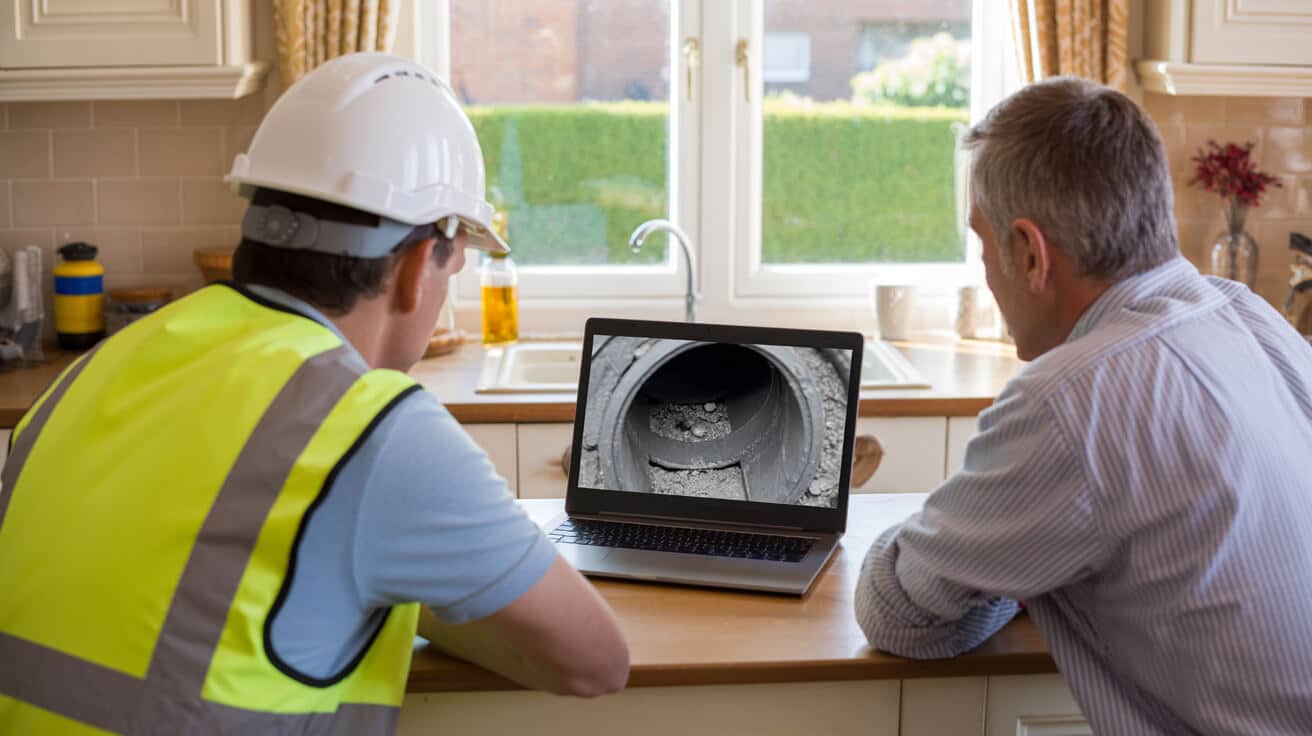
A valid CP12 certificate says the appliance was safe on the day of the check. A comprehensive gas service, however, goes deeper—checking for subtle leaks, inefficient combustion, failing seals, pressure drops, and future-proofing your investment. Whether you’re managing a single house or a commercial portfolio, the question isn’t, “Have I passed?” It’s, “Would my service records detect trouble before I—or my insurer—have to?”
What Falls Through the Gaps if You Only Chase the Minimum?
- CP12 covers only legal minimums; it does not guarantee real fault detection or robust future performance.
- Skipping annual servicing means missing slow-building risks—like carbon monoxide escapes, loss of efficiency, or premature breakdown.
- Full service dovetails with manufacturers’ warranties and extends appliance lifespan, reducing total cost of ownership.
- Insurance and warranty claims increasingly hinge on documented, itemised service logs—not just ticked CP12 checks.
- Neglecting anything beyond the minimum can be the reason your claim is excluded or your property is left out of pocket after an incident.
Most emergencies trace back to small faults visible in service, not just checklists. *(NRLA 2024)*
The savviest owners distinguish between “bare minimum” and genuine prevention. Engage a Gas Safe engineer for your certificate; deploy another for full-system service and advice. That dual approach is your difference between being “signed off” and being protected.
A CP12 stamps today’s safety. Only servicing buys tomorrow’s peace of mind.
Why Only Gas Safe Registered Engineers Protect You
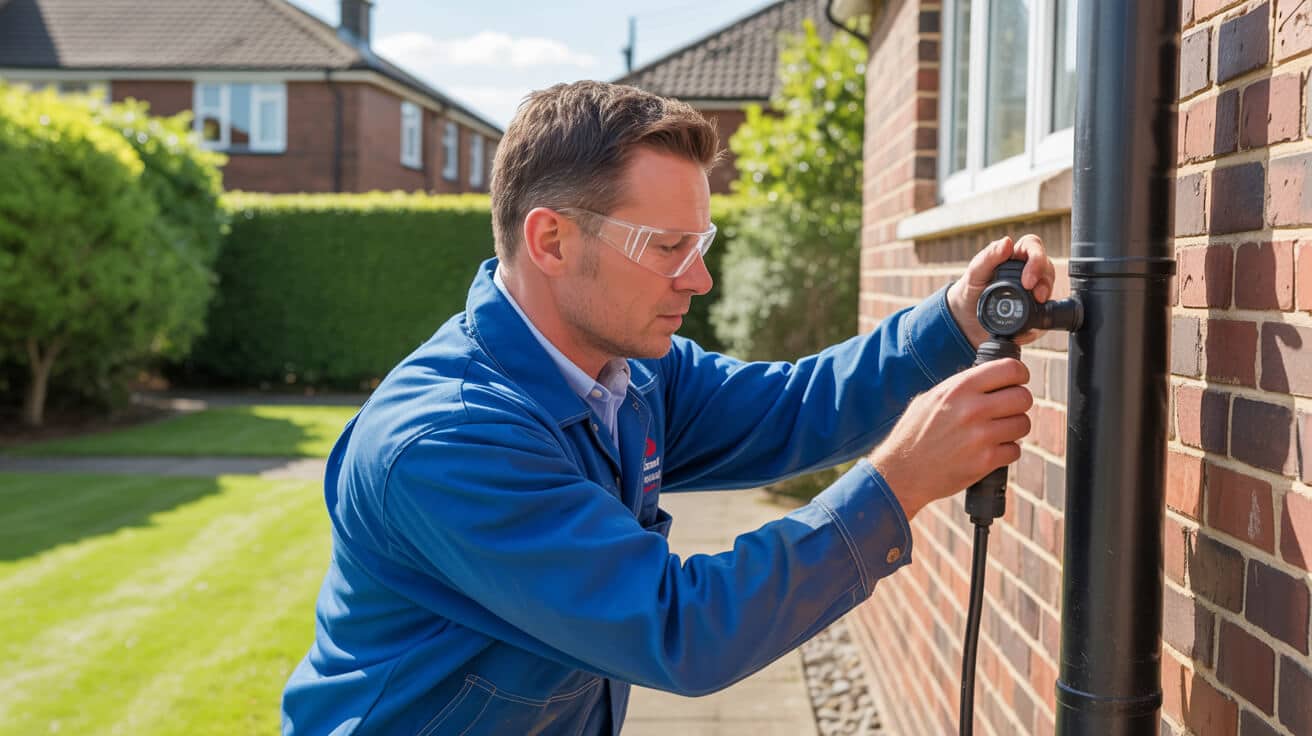
It’s tempting to let a long-time handyman “just check the boiler” or have maintenance do a once-over. That shortcut can kill your legal security. Only Gas Safe registered engineers can legally test, service, or certify gas appliances in the UK. This is non-negotiable—councils, courts, and insurers reject paperwork from anyone else outright.
Four-Step Protection Checklist
- Ask for the card: Every engineer must show their up-to-date Gas Safe ID. Even well-meaning staff, agents, or contractors cannot legally sign off or repair gas systems.
- Demand detail: Certificates and service logs should spell out individual appliances—as serialised, at the address, checked and passed/faulted.
- Keep records two years minimum: For every service, fix, and CP12—file both paper and digital copies, and back up.
- Don’t “trust but verify”—just verify: Agents and block managers especially—do not rely on confirmation alone. Check engineer status online and require evidence. Keep your audit trail fresh.
It is a legal requirement for landlords to use Gas Safe registered engineers and to hold records for two years. *(gassaferegister.co.uk)*
In the current environment, audit-readiness equals business resilience. After tragedies like Grenfell, “we thought it was ok” no longer protects anyone—only certified, dated, and line-by-line records are valid currency.
Legal cover isn’t accidental: it’s engineered into every ID card, every service sheet, and every backup copy you retain.
What Are the Hidden Dangers of Skipped or Late Gas Servicing?
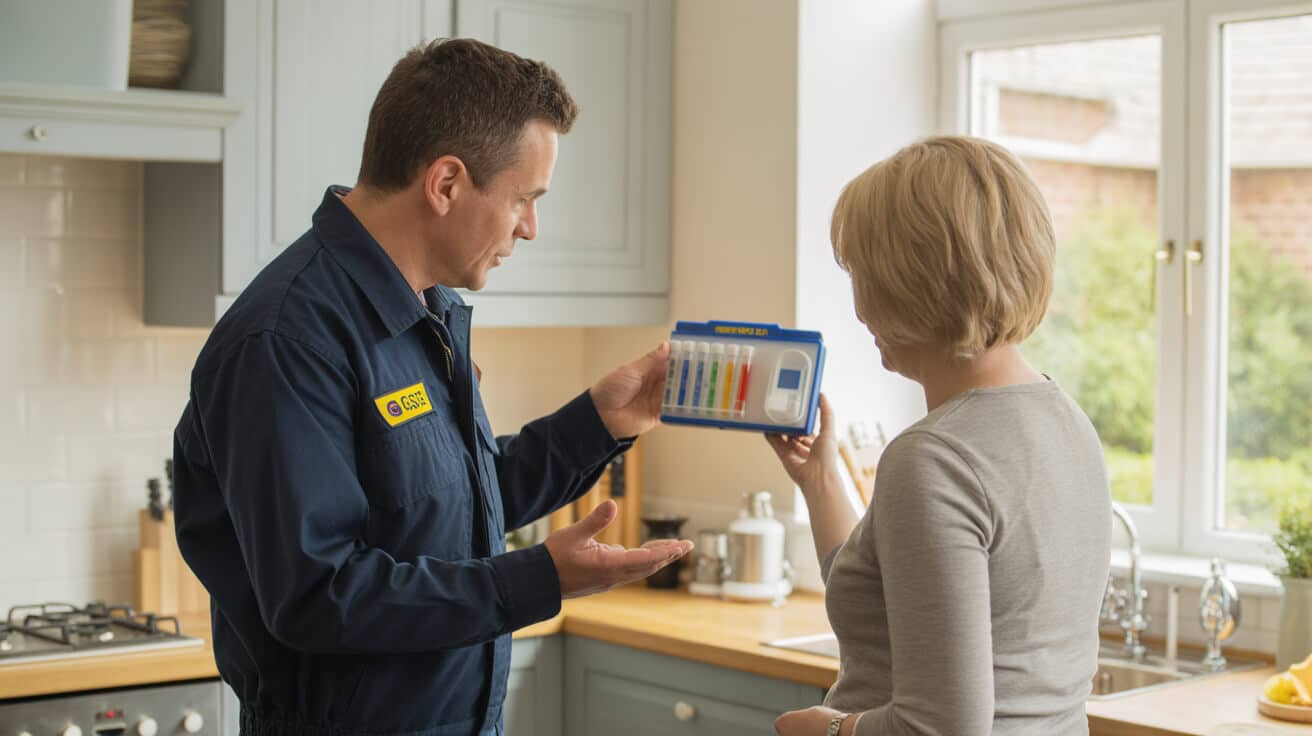
Failing to complete (or prove) annual gas servicing doesn’t just mean a slap on the wrist. It ignites a spiral: insurance policies can be revoked before you ever claim. Section 21 notices get thrown out, derailing your entire eviction or property move-out plan. Regulators and councils increasingly fine on missing proof—not even waiting for an actual fault. The financial impact is fierce, and the reputational toll is even harder to patch.
How Skipped Service Turns Small Gaps into Large Risks
- Insurers can and do cancel cover over a single missing certificate; no amount of explanation buys it back if an incident occurs.
- Service windows that drift, even by a few weeks, jeopardise legal routes for possession or compliance.
- Regulatory fines start at £6,000, not including the cost of remedial work, lost tenancies, or PR headaches.
- Critical faults—like slow carbon monoxide leaks—may never present symptoms until the worst happens.
If you miss a year, insurers can and do refuse claims—even when you ‘fix’ it later. *(boiler-systems.co.uk)*
You cannot “retrospectively” become compliant. Compliance is a living, daily discipline that separates respected, future-proofed professionals from those who only resolve to care after a disaster has exposed everything that went unsorted.
Documentation isn’t just paperwork. It’s your last line of defence against sudden chaos.
Real Hazards Prevented by Proper Gas Servicing
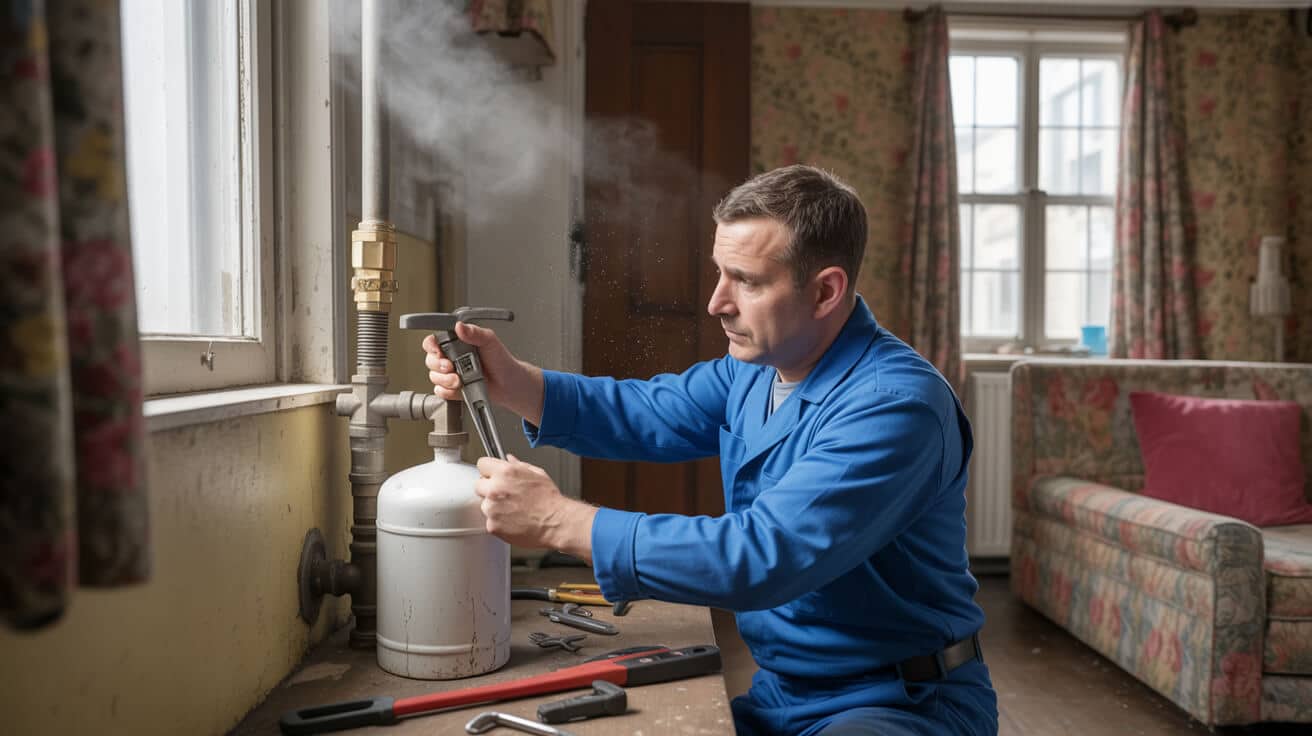
A rushed CP12 or a hasty checklist won’t spot the silent killers: partial flame failure, slow leaks, cracked seals, combustion residue, or substandard flue flows. Only a detailed service—usually lasting at least an hour and including full safety checks, efficiency readings, and visual inspections—will surface risks that ruin heating systems and endanger lives.
Make Your Paperwork “Forensic-Ready” for Any Audit
- Request engineer notes on every appliance: “checked”, “measured”, “adjusted”—with data, not just tick-boxes.
- After a fix or replacement, require photos of the serial, fitting, and finished job.
- Never settle for a summary sheet: each entry should link appliance, action, outcome, and engineer credentials.
- If your service provider resists detail, treat that as a red flag—lawyers and insurers will.
CO poisoning and fire risks spike sharply in properties without yearly, documented service notes. *(gassaferegister.co.uk)*
The cost of “too much” record-keeping? Practically nothing. The cost of missing detail? Measured in claims denied, tenancies challenged, and reputations downgraded.
When things go wrong, records aren’t just safety nets—they’re the only thing that can reverse the damage.
Why Insurance, Compliance, and Risk Are Now Fused
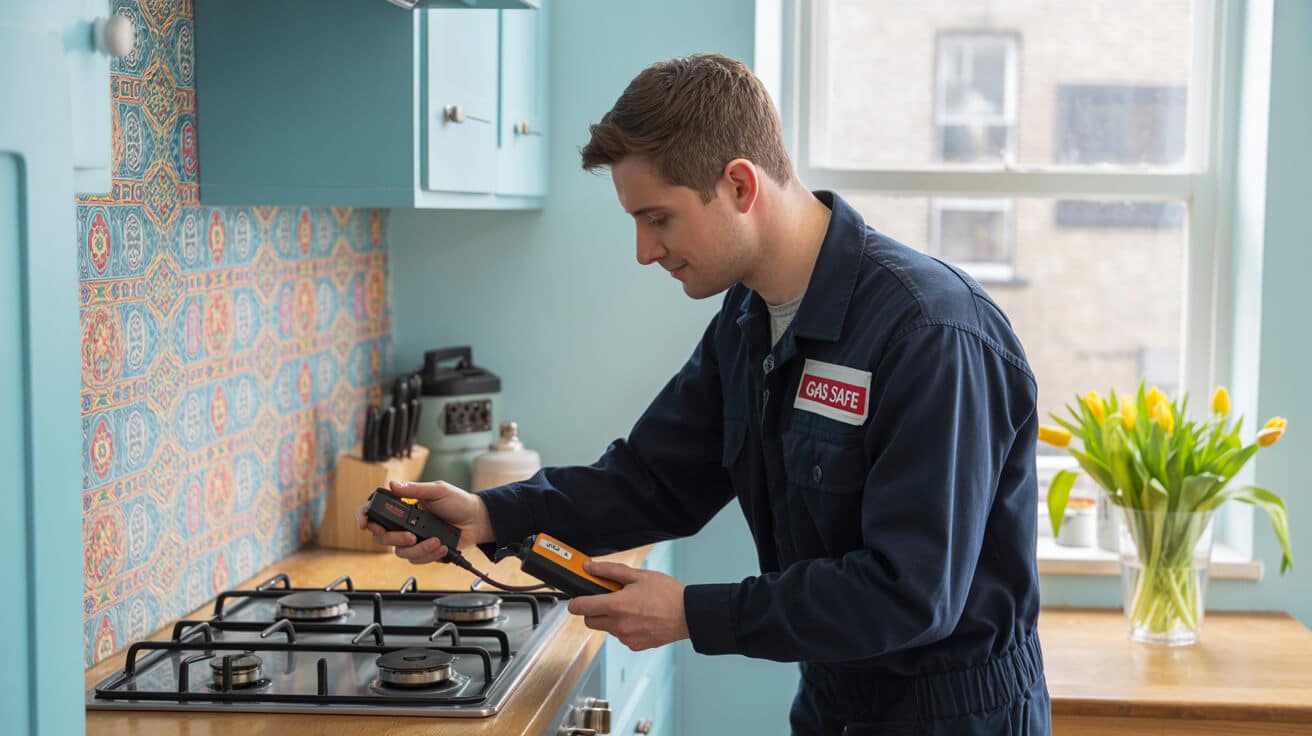
UK insurers, local authorities, and even some mortgage lenders are moving the goalposts: six years of continuously retrievable records is fast becoming the audit “norm”. Forget a single CP12, and you could forfeit not just gas-related claims, but all cover for damage, loss of rent, or even non-gas disputes if gaps emerge.
Audit-Proof Your Portfolio with This Owner’s Drill
- Save both digital files *and* paper—cloud storage, encrypted drives, and print backups, for *every* property.
- Update tenant, property, and engineer contact info every year; keep a single register, not scattered folders.
- Service logs must show *appliance-by-appliance*: serial number, fault, pass, who did the work, what was changed or checked.
- Ask yourself today: “If a regulator, court, or insurer rang now, could I email or print every record from the last six years—*across all my lets—in ten minutes*?”
Many insurers now require proof of boiler and appliance servicing for policies to remain valid. Lapses, even brief, can mean a denied claim. *(checkatrade.com)*
No one wins a compliance race after a claim arises. Modern property pros invest in compliance so their business calculates risk in advance—never in hindsight.
Admin isn’t admin. When it comes to gas, admin is money, reputation, and peace of mind—all in the same file.
What Does Gas Servicing Actually Cost, and Is “Bargain” Ever Worth It?
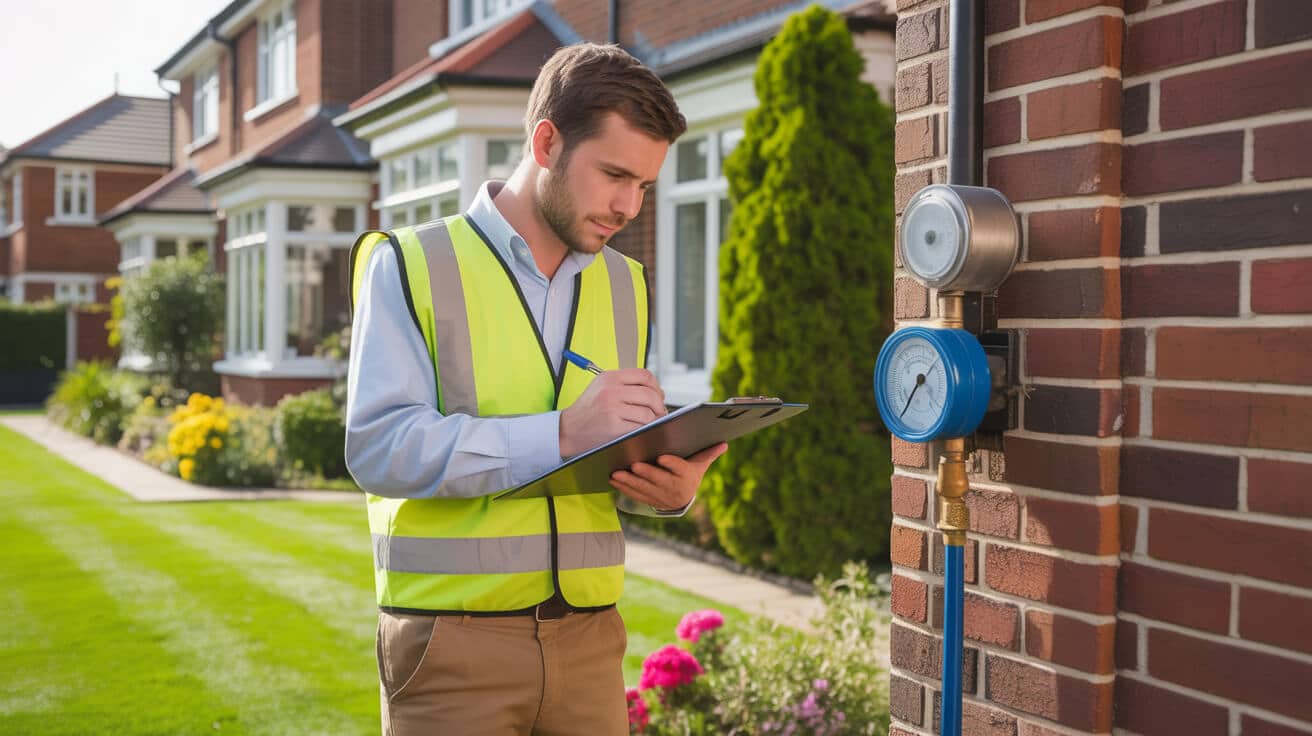
A proper gas appliance service (with real certification and lasting records) averages £80–£120 across the UK: London sits at £102, Manchester at £71, with national chains sometimes adding a premium for same-day service or callout response (nimblefins.co.uk). For block managers or letting agents, agencies may negotiate discounts, but beware—cut-price deals almost always mean cut paperwork or credentials.
Shortcuts “Save” Pennies, But Can Cost Everything
- Below-market rates often mean incomplete checks, falsified records, or unqualified personnel—none of which buy protection when challenged.
- Full, itemised receipts (with engineer details, appliance register, and results) give you leverage in every scenario.
- Multi-property discounts are worth asking for, but only once you’ve verified details and credentials up front.
- Reputable, WRAS and Gas Safe registered firms (like Plumbers 4U) always issue warranty-safe documentation—chains or unaccredited “bargains” may not.
Average UK annual service runs £100. London £102, Manchester £71. Independents can offer better rates than chains, but quality varies. *(nimblefins.co.uk)*
Quality, verifiable service is the only true price-saver over time. No discount beats being able to prove, on demand, that every part of your portfolio is safe and legal.
The cheapest price is sometimes the most expensive regret you’ll ever pay.
Why Plumbers 4U Means More Than a Stamp—It Means Security, Value, and Confidence
Anyone can “tick the box”—but professional properties demand more. Plumbers 4U delivers engineer-led, auditable, and fully compliant service that earns trust: Gas Safe, WRAS, and G3 certifications matter not just for today’s tenants, but for tomorrow’s inspections, claims, and brand reputation.
- Full compliance, no ambiguity: Every job is documented, both digitally and on paper—each engineered for audit-longevity, supported by clear engineer IDs, photo logs, and centralised registers.
- Expert advice, free of upsell: Engineers who know their regulations take the time to explain—whether to a first-time landlord, a cautious block manager, or a council official conducting a spot audit.
- Tenant-first communication: Appointments are coordinated with residents’ schedules; all safety or fix notes are left with clear instructions and, where needed, regulatory references.
Professional diligence isn’t just a virtue—it’s the factor that keeps your properties safe, your records robust, and your brand trusted.
From digital reminders and scheduled alerts, to G3/WRAS-compliant workflows and live record-keeping, Plumbers 4U helps you move from “reactive” to “resilient”. Every step, inspection, and paper trail — built to solve tomorrow’s challenge before it arises.
In a business where the only true security is proof, why settle for less than an audit-proof partner?
Book Your Service with Plumbers 4U Today
Property leaders—whether homeowner, landlord, agent, or commercial portfolio manager—who keep their gas safety servicing on time do more than just “pass inspection.” They protect their investment, retain trustworthy tenants, and sleep easier knowing that an audit, a regulator, or a claim can’t upend everything they’ve built.
Plumbers 4U delivers:
- Accredited protection: Each engineer is Gas Safe and WRAS certified, with every record delivered for filing at the property and portfolio level.
- Evidence-first results: You receive digital and paper logs for every fix and visit—records that give weight in every claims process and council audit.
- Stress-free, client-led compliance: Automated reminders, flexible appointments, and engineer advice designed for owners who prefer prevention over cure.
Join responsible property leaders safeguarding lives, assets, and reputations with Plumbers 4U—book a fully certified, record-ready service today.
🚰
Frequently Asked Questions
Why is skipping annual gas appliance servicing a gamble with both law and livelihood?
A single missed gas appliance service isn’t just a clerical slip—it’s an open door to legal headaches, denied insurance, and safety failures that can upend your entire property portfolio. Every year in the UK, Gas Safe Register reveals thousands of unsafe installations, while most non-compliant properties only get discovered after an emergency or legal challenge. Enforcement isn’t hypothetical: councils hand out fines up to £6,000, and landlords can lose their right to let. But homeowners aren’t immune—missed service dates often void home policies, costing families dearly after incidents like carbon monoxide leaks or gas explosions.
What you don’t inspect becomes the one thing that catches you out—always when it matters most, not when it’s convenient.
Here’s where things get real: most insurers scrutinise your documentation for every claim, and if you can’t pull up a current CP12 or service report, payouts are typically refused—even retroactively for historical lapses. Tenants may then lawfully withhold rent, contest evictions, or escalate absent records to letting agents and local authorities. It all pivots on a simple rule: either your maintenance proof is in order or your legal and financial footing collapses the moment a problem surfaces.
How do liability and compliance threats escalate behind the scenes?
- CO and gas leaks are silent: Only regular servicing uncovers issues early; signs are rarely visible in daily use.
- Paperwork lapses invalidate protection: CP12 and service record gaps equal lost legal standing for landlords.
- Insurance tolerates no grey area: Claims reviewers dig deep—no record, no cover, and possible retrospective claw-back on previous claims.
Annual checks aren’t a nuisance—they’re your shield against that domino effect of risk. Prioritise documentation now and your assets, reputation, and compliance all work in your favour.
How often is servicing required—and who’s on the hook to prove compliance each year?
Regulation leaves zero ambiguity: UK landlords must schedule a full gas safety check on every appliance, flue, and chimney in every let property once every 12 months. Homeowners with gas boilers, fires, or cookers face indirect—but real—risks if annual servicing slips, as policy and warranty exclusions are the default result of missed maintenance.
By law, letting agents, housing associations, and portfolio landlords must also deliver a valid Gas Safety Record (CP12) to tenants within 28 days of each check. Mortgage lenders and insurers routinely demand evidence from homeowners. Fail to keep records up to date and repairs, claims, and evictions can be blocked or denied without appeal—a process that’s getting ever more automated as more providers cross-check national service registers.
Missing just a single annual visit isn’t a minor admin error—it can instantly freeze your rights and set off a cascade of penalties.
What counts as compliant annual servicing for different property types?
| Property Category | Must-Check Systems | Minimum Interval | Standard Proof Needed |
|---|---|---|---|
| Rental Property | All gas appliances | 12 months | CP12 (Gas Safety Record) |
| Owner-Occupied Home | Boiler, fires, hob | 12 months | Service invoice/log |
| Commercial Premises | All appliances/flues | 12 months | CP12, enhanced log |
“Annual” means on time—no grace period, no wiggle room if a tenant moves or a holiday intervenes. Best practice is to pre-book your next service the moment you get this year’s certificate.
What tangible consequences do late or missing gas appliance services trigger with insurers and local authorities?
One forgotten service can cancel years of cover. Most UK insurance policies have hard enforcement clauses—without up-to-date service documentation at claim time, property damages from boiler or gas incidents are routinely rejected. This applies to landlords and homeowners alike, and regulators rarely see missing paperwork as an honest mistake.
Local authorities may issue formal improvement notices, fine you, or intervene in rental operations, and letting agents routinely sever relationships with portfolio landlords found to be out of compliance. Tenants—especially in regulated sectors—can report landlords, trigger inspections, and even claim compensation for exposure to risk.
When regulators, insurers, or tenants ask for proof, I’ve lost the paperwork isn’t a defence—it’s grounds for penalty or denial.
Which documents keep doors open (and which lapses shut them)?
| Essential Record | Keeper/Audience | If Lacking… |
|---|---|---|
| CP12/ Gas Safety Cert | Landlord/Tenant | Fines, tenancy block, rent withheld |
| Appliance service log | Owner/Insurer | Insurance denial, voided warranty |
| Engineer qualification | Owner/Auditor | Works classed as non-compliant |
Treat every certificate or invoice as a legal asset; store digital and paper copies in at least two locations, and transfer them with every tenancy or ownership change.
What exactly does a modern gas appliance service cover and what will you pay in 2024?
A thorough gas appliance service in 2024 blends physical safety checks, advanced digital measurement, and bulletproof audit trails—costing most landlords and homeowners between £76 and £120 per appliance. Large portfolios or commercial properties see higher per-visit rates, but contract bundles can cut costs while boosting documentation standards.
Comprehensive servicing now includes full combustion analysis, tightness and leak detection, flue and airflow measure, seal and valve inspection, gas metre checks, reset and safety tests, as well as photo-based logging for many engineers. The service should yield a CP12 or equivalent audit-ready proof for landlords and a fully itemised invoice (often digital) for homeowners.
| Service Type | Guide Price (2024) | Service Inclusions |
|---|---|---|
| Boiler Service | £76–£120 | Safety test, calibration, record |
| CP12 Landlord Certificate | £60–£120 | Legal paperwork, all appliances |
| Multi-Appliance Bundle | £120–£190 | Full audit, all certificates |
| Commercial/Portfolio | £150–£250+ | Audit-level scope, rapid response |
True value comes from knowing your records won’t let you down—saving pennies on the check means nothing if it costs you a denied claim or a failed audit.
Always confirm the Gas Safe ID on arrival, demand an itemised receipt with full credentials, and make sure your provider supplies documents in both paper and digital form for insurance, compliance, and warranties.
Why does annual gas servicing deliver far more than just compliance or box-ticking exercises?
Annual gas servicing is your “system reset”—it’s how you turn hidden vulnerabilities into checked-off protections. Even the best-maintained pipework and appliances can gather risk over months: condensation or blockages in flues, minor valve fatigue, or small combustion faults that quietly drive up bills and wear out warranties.
Professional checks catch and resolve these before they stack up, keeping tenants safe, property sale-ready, and audits frictionless. For building owners, up-to-date recordkeeping is tangible evidence of care for insurers, lenders, and future buyers.
- Documented safety: Protects tenants, staff, and guests—supported by written evidence for any inspector.
- Sustained efficiency: Yearly adjustments mean your system burns less gas for the same heat, often paying back the service cost.
- Resilience against audit or dispute: When landlords or managing agents flash a stack of dated service certs, Section 21s and insurance claims clear faster.
| Property Owner Type | Top Benefit | What You Gamble By Missing |
|---|---|---|
| Homeowner | Lower costs, warranty | Claims rejected, repairs denied |
| Landlord/Managing Agent | Legal status, rent | Eviction block, regulatory fine |
| Commercial Asset Holder | Business safety, asset value | Audit loss, service outages |
Nothing demonstrates accountability like a shelf (and inbox) of reliable, recent, and fully certified service paperwork, ready at a moment’s notice.
Annual service is a mindset. It’s leadership by example, not just compliance. And firms like Plumbers 4U make that elite standard practical and accessible, no matter how many keys or portfolios you manage.
How do you guarantee your next gas service is above board, audit-proof, and future-ready in the UK?
You want an engineer whose documentation stands up in court and whose credentials command respect from the insurance desk, compliance auditor, and not least, your tenants. That means:
- Start only with engineers on the official (https://www.gassaferegister.co.uk/find-an-engineer/). Check the backside of their ID card yourself—they must hold every category for systems at your address.
- For unvented cylinders, ask for current G3 credentials. For commercial or large portfolio work, look for teams that handle audit scheduling, digital batch certificates, and have visible reviews for regulatory jobs.
- Demand itemised quotes covering every appliance, all callouts, and digital (not just paper) paperwork in advance. Service should always finish with an engineer showing you proof of the completed work on the spot—no delays, no email-only promises.
- If you manage a block or have multiple properties, partner with a provider like Plumbers 4U who offers bundled scheduling, batch certification, and rapid compliance escalation straight from your dashboard.
The day you need your service log is never the day you want to discover a shortcut, missing signature, or expired badge.
Choose partners who treat both compliance and user safety as non-negotiables, not as checkboxes. It’s not just about “passing” this year—it’s about never losing your edge, your let, or your legal status ever again.



